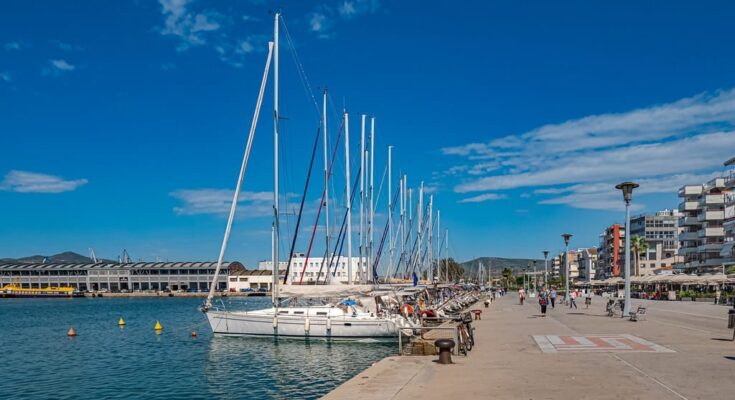
Greece’s Supreme Court prosecutor ordered an urgent investigation into the reason behind the massive amounts of dead fish in Greece’s city of Volos.
This latest development came a few days after Volos, a popular destination and port city in central Greece, got overwhelmed by a rare and appalling phenomenon.
A staggering amount of dead fish has been washing off the shores of the city of Volos for days, creating a horrible spectacle for locals and visitors alike.
What happened with the fish in Volos, Greece?
This unprecedented environmental catastrophe prompted the initiation of an urgent investigation by Georgia Adelini, a prosecutor of Areopagus, Greece’s Supreme Court.
The scene, which has been characterized as apocalyptic, with tons of dead fish blanketing the entire coastal area of the Pagasetic Gulf, is truly heartbreaking.
According to experts from the broader area of Magnesia and Thessaly, the fish came from the nearby Lake Karla.
The consequences of this event are grave, not only in terms of optics for the city but also in relation to public health.
Prosecutor Adelini has ordered a preliminary investigation to determine the cause of this catastrophic event, as despite media speculation, it remains unclear.
Greece’s authorities, as well as fish experts in Volos, are now tasked with examining the operation of the gate and tunnel that connect Lake Karla to the sea.
They will also have to investigate the trail of orders and decisions about the irrigation schedules of the surrounding plains.
The probe will also look into whether the sluice gate of Lake Karla should have been closed earlier when the first incidents of dead fish being discovered in the sea near Volos took place.
Is last year’s flooding to blame?
According to maritime experts, one reason behind this phenomenon of massive amounts of dead fish accumulating in the port of Volos Greece, could be the uncontrolled displacement of freshwater fish towards the sea during the severe flooding disaster that struck Thessaly and Volos last year.
The intense floods in the Thessaly region in early September 2023 forced the fish into the Pagasetic Gulf and the Aegean Sea, where the saltwater proved fatal to the freshwater fish species that could not survive in seawater.
Speaking to reporters, the mayor of Volos, Achilleas Beos, accused Greece’s government of not installing protective nets that could catch the dead fish before they reached the shores of the city of Volos.
Massive cleanup efforts now continue across Volos and the Magnesia region of the Pagasetic Gulf, and the people of Volos are trying to cope with the consequences of this maritime environmental disaster, less than a year after the massive flooding that hit the area.



